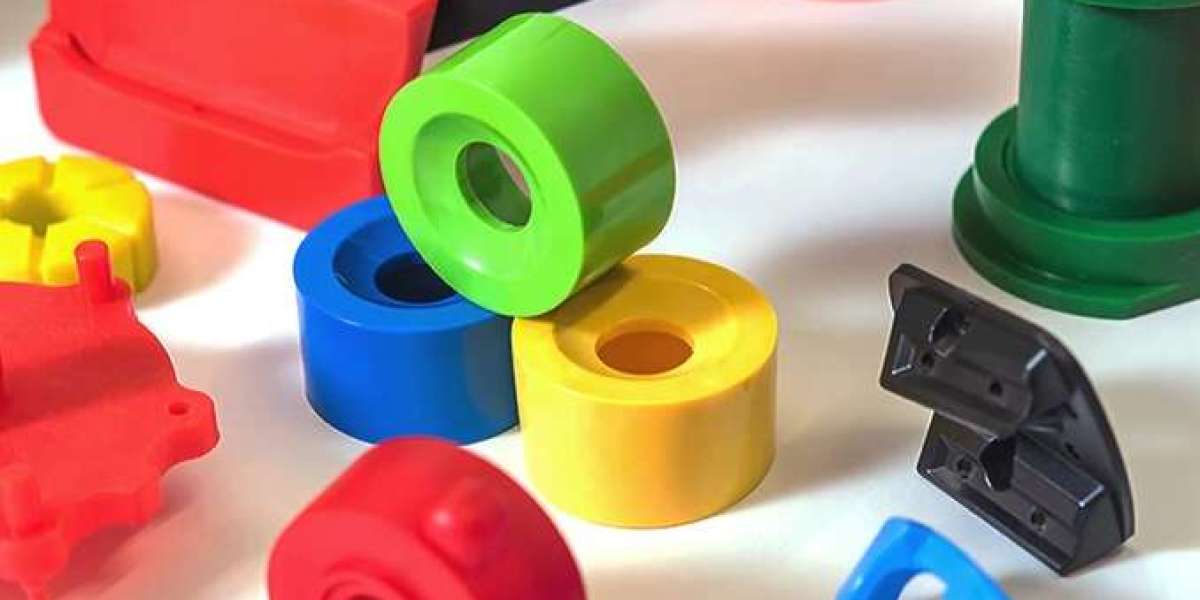In the modern world of manufacturing and product design, the ability to create custom molded shapes has opened up new avenues for innovation, precision, and efficiency. Whether it's for industrial components, consumer products, or intricate prototypes, custom molded shapes are an essential element in producing high-quality, tailored items that meet specific needs and requirements. Let’s dive deeper into what custom molded shapes are, the benefits they offer, and their various applications across industries.
What Are Custom Molded Shapes?
Custom molded shapes refer to components that are shaped according to specific designs through the use of molds in manufacturing processes. These shapes can be made from a wide range of materials, including metals, plastics, rubber, and even ceramics, depending on the intended application.
The process begins with designing a mold, which serves as a template to shape the material. Once the material is introduced into the mold, it undergoes processes like heat treatment, pressure, or curing to take the shape of the mold. The end result is a highly accurate and consistent product that matches the original design specifications.
Types of Custom Molded Shapes
Several different manufacturing techniques are used to produce custom molded shapes, each suited for different materials and applications:
Injection Molding: Commonly used for plastics, injection molding involves injecting molten plastic into a mold under high pressure. This method is ideal for creating large quantities of intricate, precise parts at a relatively low cost.
Compression Molding: Typically used for rubber, compression molding involves placing a pre-measured amount of material into a mold and applying heat and pressure to shape it. This process is common in the automotive and aerospace industries for making durable rubber seals and gaskets.
Blow Molding: Often used for hollow objects like bottles, blow molding involves inflating heated plastic within a mold to form a specific shape. This process is widely used in the production of containers and packaging.
Rotational Molding: Used for large, hollow shapes, rotational molding involves heating a mold while rotating it on multiple axes. The plastic inside the mold melts and coats the interior to form a uniform layer. This method is typically used for creating tanks, playground equipment, and other large hollow parts.
Thermoforming: In thermoforming, a sheet of plastic is heated to a pliable state and then shaped into a mold. It is ideal for creating thin-walled products such as trays, packaging, and other lightweight components.
Die-Cutting: For flat materials like metal or rubber sheets, die-cutting can create custom molded shapes. This technique is often used for making washers, gaskets, and seals.
Benefits of Custom Molded Shapes
Precision and Accuracy: Custom molding techniques allow for highly accurate and repeatable shapes, ensuring that each part meets the required specifications. This is particularly important in industries like aerospace and automotive, where component tolerances are crucial.
Cost-Effective: While the initial setup for custom molding may require investment in mold creation, the ability to produce large quantities of parts at once often results in significant cost savings per unit. Over time, this makes custom molding highly cost-effective for mass production.
Material Versatility: Custom molds can be used with a wide range of materials, from metals to plastics to rubber. This provides manufacturers with flexibility when selecting materials based on performance, cost, and durability requirements.
Design Flexibility: Custom molds allow for the creation of complex and unique shapes that may be difficult or impossible to produce using traditional machining methods. This design flexibility is invaluable when creating innovative products or prototypes.
Speed and Efficiency: Once the mold is created, the manufacturing process for custom molded shapes can be relatively quick. This leads to faster production times and the ability to scale up production rapidly.
Consistency: Custom molds ensure that each part produced is virtually identical, which is essential for high-volume production runs. This consistency reduces errors, improves product quality, and minimizes waste.
Applications of Custom Molded Shapes
Custom molded shapes are used in a variety of industries, each benefiting from the flexibility, accuracy, and cost-effectiveness of custom molding processes. Here are a few key applications:
Automotive Industry: Custom molded parts like gaskets, seals, and rubber components are essential for ensuring the performance, safety, and efficiency of vehicles. With custom molding, these parts can be produced with exact specifications and in high volumes.
Aerospace and Defense: Components used in aerospace require the highest precision, reliability, and durability. Custom molded parts, such as seals, O-rings, and insulation, are integral to aircraft and defense systems, ensuring they can withstand extreme conditions.
Medical Devices: In the medical field, custom molded parts such as surgical instruments, implants, and tubing are necessary for patient safety and performance. The ability to create shapes tailored to specific functions is vital for the success of medical devices.
Consumer Electronics: Custom molded shapes are often used in the housing of electronic devices such as smartphones, laptops, and appliances. These molded cases protect sensitive components while providing a sleek, ergonomic design.
Packaging: Custom molded packaging, such as molded pulp or plastic trays, ensures that products are securely and safely transported. Custom molds can create packaging that is both functional and aesthetically pleasing.
Consumer Goods: Everyday products, from toys to kitchen tools, often rely on custom molded shapes to achieve the desired form and functionality. Custom molds can produce intricate, functional designs that are hard to achieve with other methods.
Industrial Equipment: Custom molded components are used in industrial machinery for parts like gears, seals, and housings. The durability and precision of molded components help to maintain the functionality and longevity of these machines.
Conclusion
Custom molded shapes play a crucial role in modern manufacturing, offering a combination of precision, cost-effectiveness, and design flexibility that benefits a wide range of industries. Whether you're designing automotive parts, medical devices, or consumer products, the ability to create custom shapes through molding opens up endless possibilities for innovation and efficiency. As manufacturing technologies continue to evolve, the demand for custom molded shapes is expected to grow, making them an integral part of the manufacturing process for years to come.








